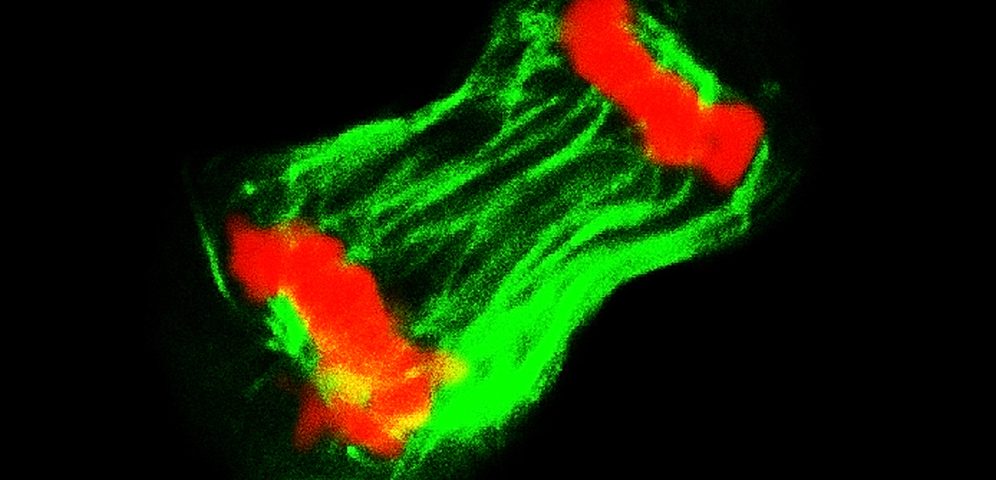Preventing cancer cells from dividing in the normal way may lead to their death, according to Israeli researchers who treated malignant cells with a compound that didn’t affect normal cells.
The treatment the Tel Aviv University team administered prevented the correct segregation of chromosomes to the daughter cells. Its inability to impact healthy cells meant it generated virtually no side effects.
The study, which applies to ovarian and a number of other cancers, was titled “Exclusive destruction of mitotic spindles in human cancer cells.” It was published in Oncotarget.
“The discovery of an exclusive mechanism that kills cancer cells without impairing healthy cells, and the fact that this mechanism works on a variety of rapidly proliferating human cancer cells, is very exciting,” Professor Malka Cohen-Armon of the university’s Sackler School of Medicine, said in a press release.
“According to the mechanism we discovered, the faster cancer cells proliferate, the faster and more efficiently they will be eradicated,” said Cohen-Armon, the study’s lead author. “The mechanism unleashed during mitosis may be suitable for treating aggressive cancers that are unaffected by traditional chemotherapy.”
The cytoskeletal structure that forms during cell division to distribute sister chromosomes between two daughter cells is called the mitotic spindle. The proper spindle structure ensures that each daughter cell is genetically identical to the other, avoiding genetic abnormalities.
In addition to chromosomes, the spindle apparatus is composed of hundreds of proteins. But some of the proteins that form the spindle in cancer cells are different from those in normal cells, studies have suggested. These proteins could be targeted to treat a variety of cancers, researchers say.
“Our experiments in cell cultures tested a variety of incurable human cancer types—breast, lung, ovary, colon, pancreas, blood, brain,” Cohen-Armon said. “This discovery impacts existing cancer research by identifying a new specific target mechanism that exclusively and rapidly eradicates cancer cells without damaging normally proliferating human cells.”
The team found that modifying proteins that are necessary for forming the spindle in cancer cells, using compounds called Phenanthridine derivatives, could disrupt the spindle. Preventing cancer cells from properly dividing chromosomes between the two daughter cells activated the cells’ death mechanisms, researchers discovered.
“The mechanism we identified during the mitosis of cancer cells is specifically targeted by the Phenanthridine derivatives we tested,” Cohen-Armon said. “However, a variety of additional drugs that also modify these specific proteins may now be developed for cancer cell self-destruction during cell division. The faster the cancer cells proliferate, the more quickly they are expected to die.”
Researchers found the treatment effective in a number of cancer cells and mouse models. This included mice implanted with triple negative breast cancer. It is the most aggressive breast cancer subtype, and there are no targeted therapies for it.
The research team is now focused on investigating compounds’ potential to treat aggressive cancers that no longer respond to chemotherapy, including triple negative breast cancer and pancreatic cancer.

